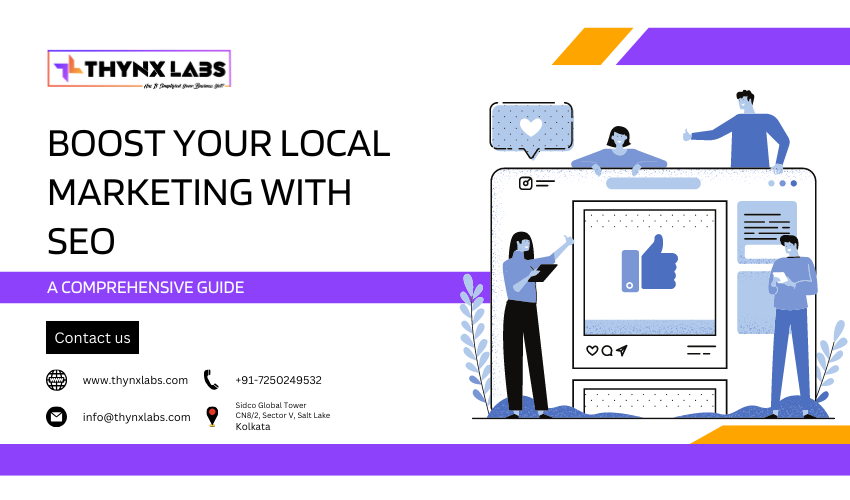10-Point Checklist for Successful Local SEO
Local SEO (Search Engine Optimization) is a critical part of any business strategy that relies on local customers. It is the process of optimizing your website and online presence to rank higher on search engines when users search for local businesses in their area. This strategy can be incredibly effective for small businesses and those that operate in a specific geographic area. Here is a 10-point checklist for successful local SEO:
1. Claim Your Google My Business Listing
Google My Business is a free tool provided by Google that helps businesses manage their online presence on Google. By claiming and verifying your Google My Business listing, you can ensure that your business information, such as your address, phone number, and hours of operation, are accurate and up-to-date. This will also help your business appear in Google Maps and local search results.
2. Optimize Your Google My Business Listing
Once you have claimed your Google My Business listing, it's important to optimize it for local SEO. This includes adding relevant categories, selecting the correct service areas, and ensuring that your business information is consistent across all online directories. You can also add photos and videos to your listing to make it more appealing to potential customers.
3. Get Listed on Other Local Directories
In addition to Google My Business, there are many other local directories that you can list your business on to improve your local SEO. Some examples include Yelp, Yellow Pages, and Bing Places. Be sure to include accurate and consistent information about your business on all directories, as this will help search engines understand more about your business and improve your ranking in local search results.
4. Ensure Your Website is Mobile-Friendly
More and more users are accessing the internet through mobile devices, so it's critical that your website is optimized for mobile. This means ensuring that your website is responsive, meaning it adjusts to fit different screen sizes, and that it loads quickly on mobile devices. A mobile-friendly website is not only important for SEO but also for providing a good user experience for your potential customers.
5. Optimize Your Website for Local Keywords
Keyword research is an important part of any SEO strategy, and local SEO is no exception. Make sure to include local keywords in your website content, such as your city or neighborhood name. This will help your website rank higher in local search results when users search for those keywords.
6. Create Location-Specific Landing Pages
If you have multiple locations or serve multiple cities, it's a good idea to create location-specific landing pages on your website. These pages should include information about each location, such as the address, phone number, and hours of operation, as well as any relevant local keywords. This will help your website rank higher in local search results for each location.
7. Get Reviews from Customers
Reviews from customers can have a significant impact on your local SEO. Encourage your customers to leave reviews on your Google My Business listing and other online directories. Positive reviews can help improve your ranking in local search results, while negative reviews can hurt your ranking. Be sure to respond to all reviews, both positive and negative, as this shows that you care about your customers' feedback.
8. Use Schema Markup on Your Website
Schema markup is a type of structured data that can be added to your website to help search engines better understand the content on your website. By using schema markup, you can provide search engines with information about your business, such as your address, phone number, and hours of operation. This can help improve your ranking in local search results.
9. Build Local Links
Links from other websites to your website are an important part of SEO. When it comes to local SEO, it's important to focus on building links from other local businesses or organizations. You can do this by reaching out to other businesses in your area and asking them to link to your website, or by participating in local events or sponsorships that provide opportunities for link-building. Building local links can not only improve your local SEO but also help establish your business as a trusted and valuable member of the local community.
10. Track Your Local SEO Metrics
Finally, it's important to track your local SEO metrics to understand how your efforts are paying off. Some key metrics to track include your website traffic, your search engine rankings for local keywords, and your Google My Business insights, which provide information on how users are finding and interacting with your business on Google. By tracking your metrics, you can identify areas for improvement and adjust your local SEO strategy accordingly.
In conclusion, local SEO is a critical part of any business strategy that relies on local customers. By following these 10 points, you can improve your online presence and rank higher in local search results, making it easier for potential customers to find and choose your business. Remember to regularly monitor your metrics and adjust your strategy as needed to ensure ongoing success in local SEO.


